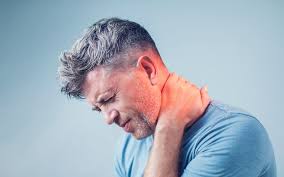Do you ever wake up with a crick in your neck? You’re not alone; many people experience this annoying and even painful sensation. It’s uncomfortable, but it doesn’t have to ruin your day. In this article, we’ll explore what causes a crick in the neck, how to diagnose it, and how to treat it. We’ll also look at ways to prevent a crick from occurring in the first place.
What Is Actually A Crick In The Neck?
Crick in the neck is a common issue that can cause pain and discomfort. It is often accompanied by stiffness, tenderness, and limited range of motion which can all affect your daily activities. Have you ever experienced having a crick in your neck? If so, you may be wondering what causes this condition and how to treat it. In this article, we will explore the different types of cricks in the neck, how to diagnose it, and discuss available treatments for relief.
Common Causes Of Crick In Neck
We all know how uncomfortable a crick in the neck can be. It can prevent us from carrying out even the simplest of tasks and cause intense pain when moving our head in certain directions. But what causes this crick to appear? In this article, we will discuss some of the most common causes of a crick in the neck and provide some tips on how to reduce or prevent it.
-
Poor Posture
Poor posture is one of the most common causes of a crick in the neck. It occurs when we do not maintain good posture while sitting, standing, or laying down. Poor posture can lead to a number of other health issues too, such as chronic fatigue and lower back pain.
The neck is naturally curved forward, so when we sit slumped over or slouch our head and shoulders forward it puts undue strain on the muscles in our neck. If done regularly enough this strain can cause pain and discomfort throughout the areas near your spine including your base of your skull and even down into your shoulders. It’s important to be mindful of how you position yourself throughout the day to avoid this kind of pain from developing.
-
Stress and Tension
Having a crick in neck is one of the most common and annoying physical ailments. It’s painful, it can last for days, and it can significantly impact your day-to-day life. But why do we get these cricks in our necks? Most often, they are a result of stress and tension.
When we experience high levels of stress and tension, our muscles tend to tighten up as a result. This tightness can cause pain or discomfort anywhere in the body—including the neck area. If left unchecked, this tension can cause spasms that pull on the neck muscles—causing them to become inflamed or irritated and leading to that dreaded crick in your neck!
-
Sleeping Positions
Do you frequently wake up with a crick in your neck? You may blame it on the pillow, but it could be due to the sleeping position you’ve chosen. Neck pain specialists near me and you can help us determine the cause and find effective treatments. In this article, we discuss common causes of a crick in your neck from sleeping positions and outline how to prevent them from happening in the future.
The most common cause of a crick in your neck is sleeping on your stomach. This position puts added pressure on the spine which can lead to stiffness or even pain when waking up. If you are unable to break this habit, try placing a small pillow under your hips or lower abdomen to help keep your spine aligned during sleep.
-
Muscle Strain
Neck pain, also known as a “crick” in the neck, is an uncomfortable condition that can be caused by many different factors. Muscle strain is one of the most common causes and can arise from poor posture, overexertion of muscles in the neck or shoulder area, or sleeping in an awkward position. If you are experiencing a crick in your neck due to muscle strain it may be time to visit a specialist.
A neck pain specialist near you can help identify the cause of your discomfort and provide tailored treatments to reduce pain and improve mobility. During your appointment they will evaluate your medical history and perform muscle tests to determine if muscle strain is causing your symptoms. Once diagnosed, they can provide specialized manual therapy techniques such as massage, stretching exercises, heat/ice treatment and more to relieve tightness and promote healing.
Treatment For Crick In Neck
Neck pain is a common symptom that can have a variety of causes, ranging from muscle strain to nerve damage. Treating a crick in the neck requires an understanding of the underlying cause and finding the right treatment plan. Working with a qualified neck pain specialist near you can help identify the best course of action to alleviate discomfort and prevent further complications.
The first step towards treating chronic neck pain is determining what is causing it. A neck pain specialist will typically assess your medical history, physical condition and lifestyle habits to identify potential triggers for your symptoms. After gathering all relevant information, they may use imaging techniques such as X-rays or MRI scans to check for any structural problems that may be contributing to your discomfort.
Once the source of your neck pain has been identified, your doctor will recommend appropriate treatment options based on their findings.
Conclusion
Neck pain is a common issue that can be bothersome and irritating. People with neck pain in Lancaster, may experience neck pain due to a variety of reasons, including muscle strain and tension. Fortunately, there are several methods for finding relief from crick in the neck.
Stretching is one way to help alleviate neck pain. Gentle stretches targeting the muscles in the shoulders, upper back, and neck can help relieve tightness associated with crick in the neck and reduce discomfort. If stretching does not provide adequate relief, hot or cold therapy may be beneficial as well. Applying an ice pack or heating pad to the affected area could provide temporary pain relief while decreasing inflammation caused by crick in the neck. Over-the-counter medication such as ibuprofen or acetaminophen may also be effective at easing symptoms associated with this condition.



